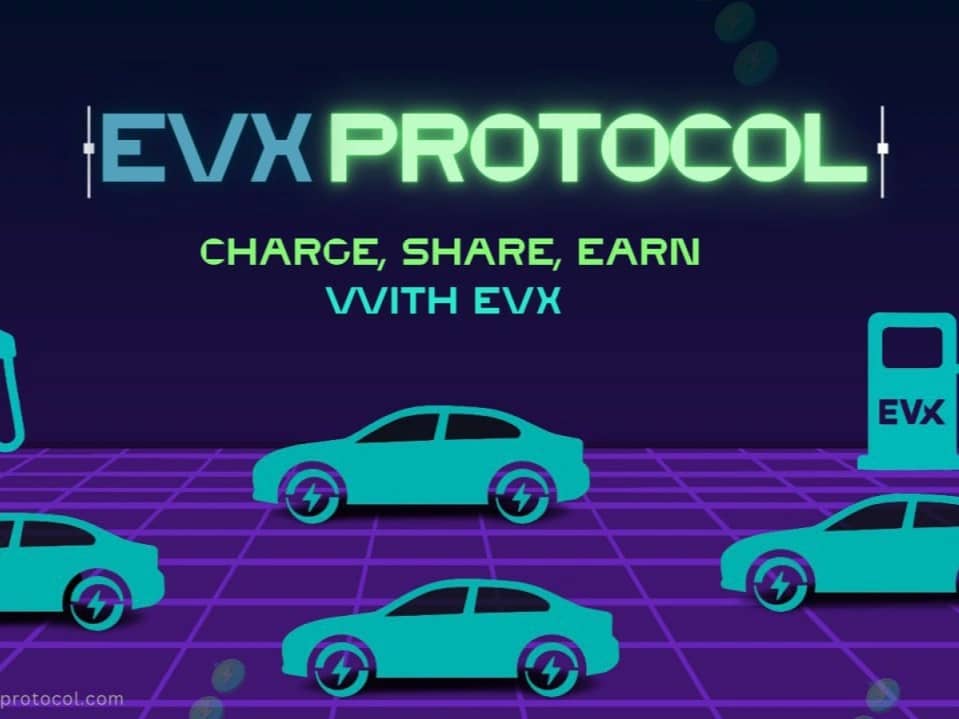Subscribe to wiki
Share wiki
Bookmark
EVX Protocol
The Agent Tokenization Platform (ATP):Build autonomous agents with the Agent Development Kit (ADK)
0%
EVX Protocol
EVX Protocol is a decentralized physical infrastructure network (DePIN) designed to create a shared ecosystem for electric vehicle (EV) charging and peer-to-peer vehicle sharing. The protocol utilizes blockchain technology to facilitate and secure transactions between participants, enabling individuals to contribute their assets, such as private EV chargers and vehicles, to the network and earn rewards. [1] [2]
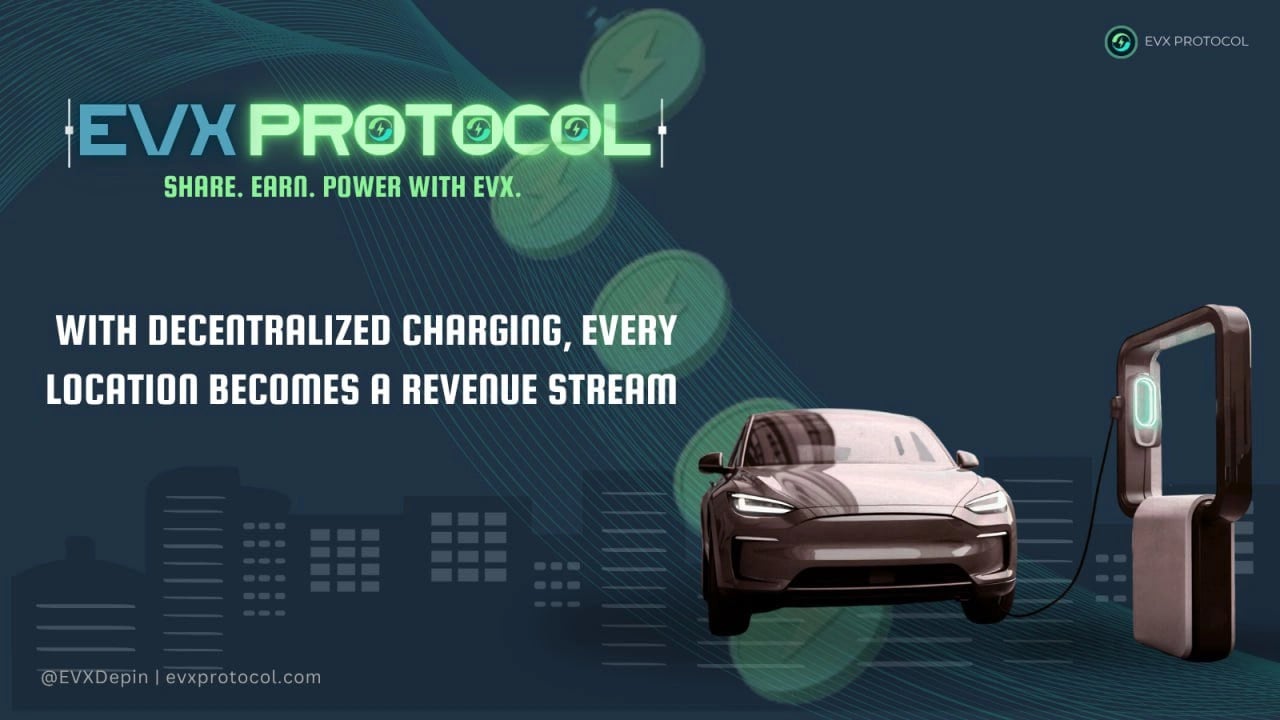
Overview
EVX Protocol aims to address key challenges within the electric mobility sector, particularly the underutilization of private EV charging infrastructure and the inefficiency of idle electric vehicles. The project's central goal is to build a community-owned and operated network that expands charging accessibility, improves asset utilization, and supports the global transition to electric transportation. By connecting asset owners directly with users through a decentralized platform, the protocol seeks to reduce reliance on centralized service providers, lower costs for consumers, and create new income streams for participants. The core mission is guided by four principles: accelerating EV adoption by making infrastructure more accessible, maximizing the efficiency of existing assets, empowering community ownership of the network, and establishing a transparent and trusted ecosystem through the use of blockchain technology. [1]
The protocol operates on a "Charge, Share, Earn" model, which encapsulates its three primary functions. EV drivers can find and use charging stations within the network ("Charge"), asset owners can contribute their chargers or vehicles to the network for others to use ("Share"), and all participants who contribute to the network's operation and growth receive rewards ("Earn"). This incentive-driven approach is fundamental to the DePIN model, which uses token rewards to encourage the grassroots development and maintenance of physical infrastructure. The project's documentation outlines a vision for a comprehensive ecosystem that integrates both charging services and a peer-to-peer vehicle rental marketplace, positioning itself as a decentralized alternative to traditional EV charging networks and car rental agencies. [4] [2]
Products and Key Features
EVX Protocol's ecosystem is designed around several core features that enable its decentralized charging and sharing networks. This includes;
P2P EV Charging:
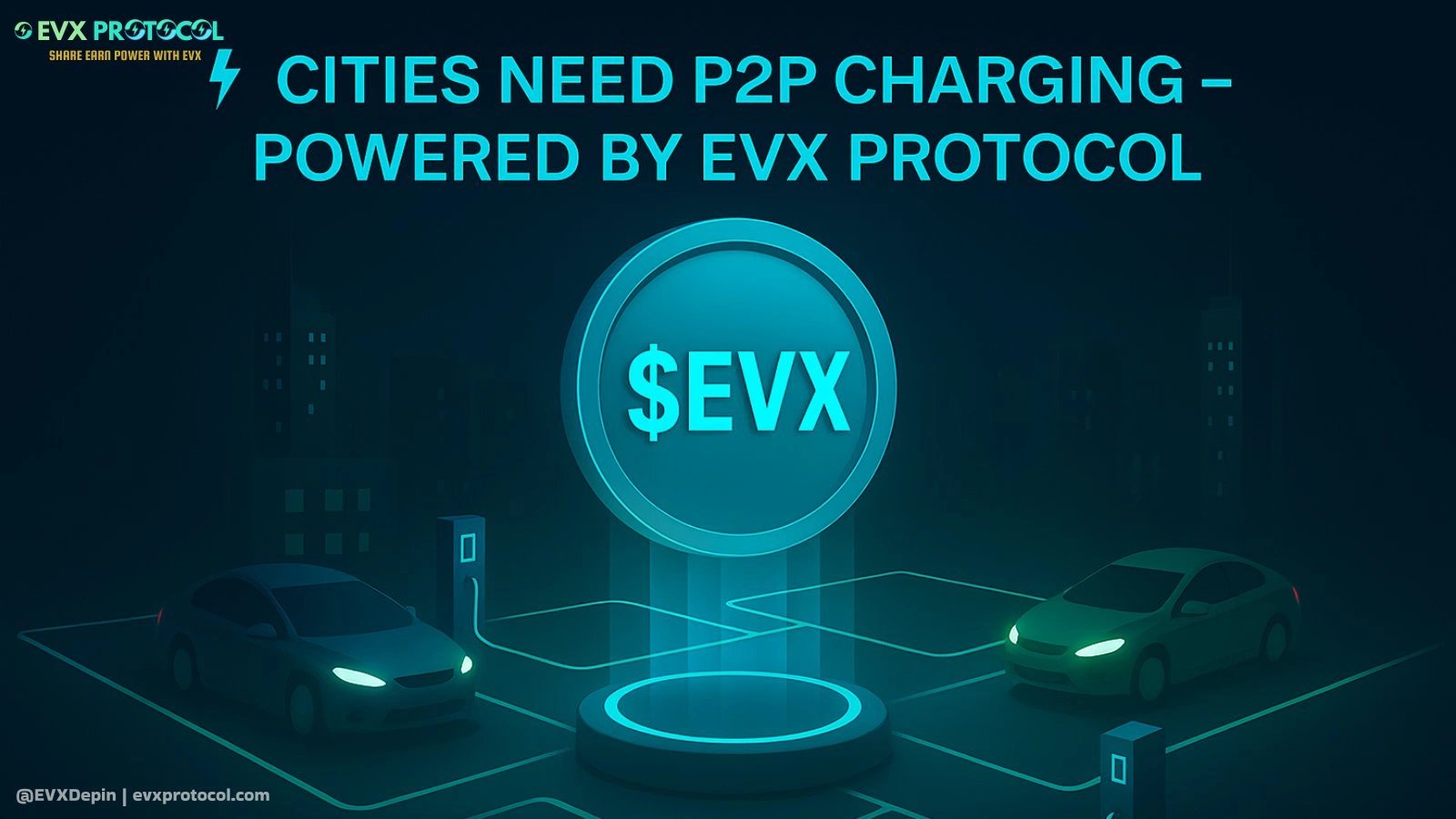
This feature allows owners of private or underutilized commercial EV chargers to list their hardware on the EVX network. By doing so, they convert a personal asset into a public, income-generating node. Other EV drivers on the network can then locate, reserve, and pay for charging sessions at these locations through a user-facing application. This model is intended to significantly increase the density and availability of charging points, especially in residential areas where public infrastructure may be sparse. [1]
Decentralized EV Sharing:
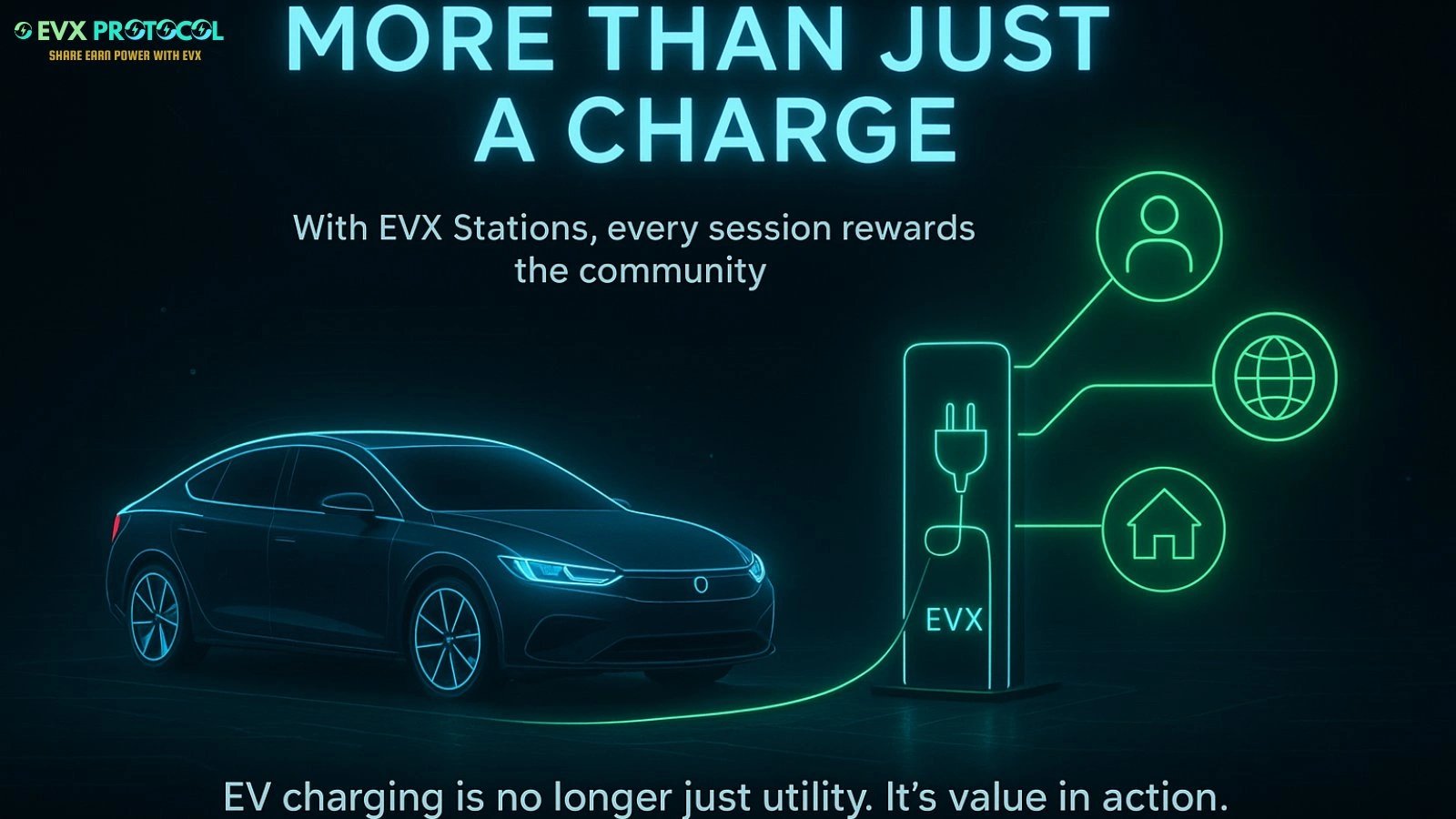
The protocol includes a peer-to-peer marketplace for electric vehicles, referred to as the "EVX P2P – EV sharing network." This allows EV owners to rent out their vehicles when they are not in use, creating a passive income stream. The entire rental process, from booking and payment to vehicle access, is managed through smart contracts, which reduces the need for intermediaries and aims to provide a more secure and efficient experience compared to traditional car rental services. [2]
Blockchain-Powered Roaming:
EVX Protocol is designed to facilitate seamless charging for users across different, independently-owned charging nodes within its network. All transactions, including energy consumption data and payments, are recorded on the blockchain. This creates an immutable and transparent ledger, ensuring that both the charger owner and the EV driver have a verifiable record of the service provided. This feature aims to eliminate the payment and compatibility issues that can arise when using different public charging networks. [1]
Trustless Sharing Ecosystem:
The protocol relies heavily on smart contracts to automate and enforce agreements between users. These self-executing contracts manage all critical interactions, such as scheduling charging sessions, processing payments for vehicle rentals, and distributing rewards to network participants. By automating these processes, the system minimizes the potential for disputes and removes the need for a central authority to oversee transactions, thereby fostering a trustless environment. [1]
Decentralized Ownership Model:
Any individual or community can participate in the network by operating a charging node or listing a vehicle for rent. To ensure commitment and secure the network, participants are required to stake the protocol's native token, $EVX. This staking mechanism serves as a form of collateral, aligning the interests of asset providers with the overall health and integrity of the network. [1]
Architecture and Technology
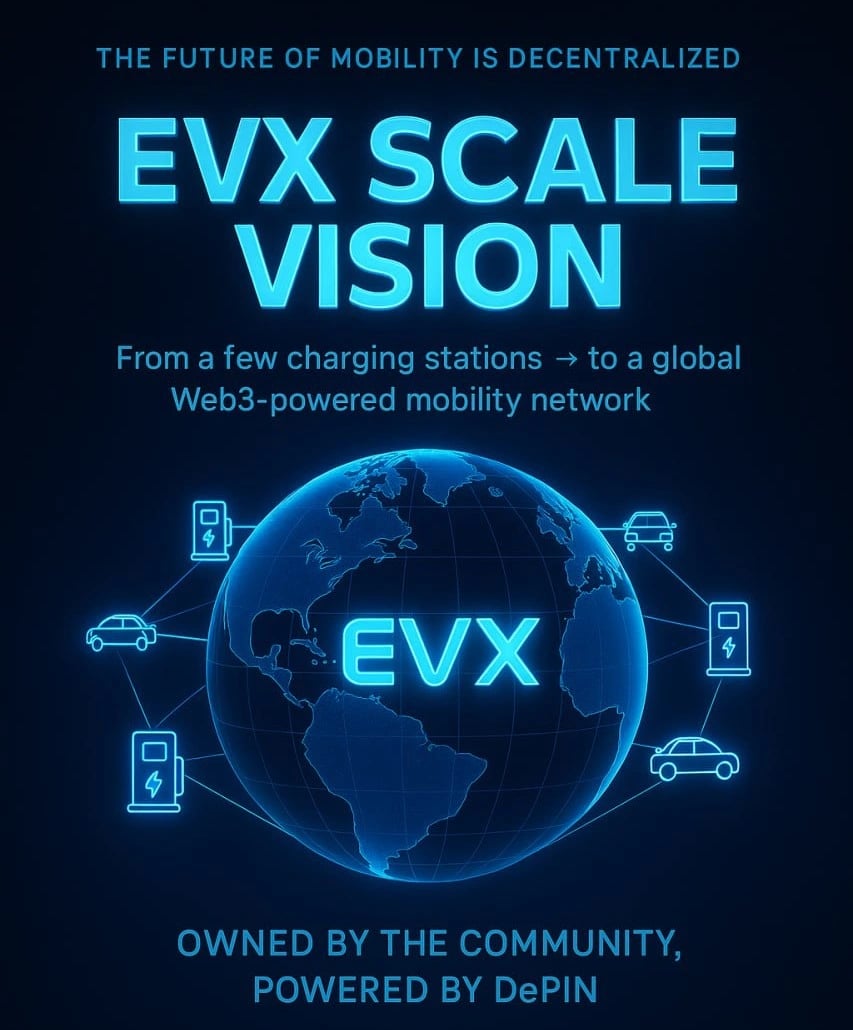
EVX Protocol is built on a Decentralized Physical Infrastructure Network (DePIN) model. At its core, the protocol uses blockchain technology as a transparent and immutable ledger for all transactions and to manage decentralized identities, ensuring secure and verifiable interactions between participants. The system's operations are automated through smart contracts, which handle critical functions such as processing payments, distributing rewards, and enforcing service agreements without the need for intermediaries. This creates a trustless environment for both charging and vehicle sharing. The protocol features a modular, layered architecture consisting of a foundational 'EVX Layer' dedicated to the decentralized charging infrastructure and an 'EVX P2P' component for the peer-to-peer vehicle sharing network. These distinct layers are built upon a common base that provides core functionalities, allowing for a structured and scalable ecosystem. [1] [2]
Use Cases
The EVX Protocol is designed to serve several distinct groups of participants within its ecosystem, each with specific roles and incentives.
- For Charger Owners: Individuals or businesses can connect their private EV chargers to the network, monetizing an underutilized asset. They earn income from charging fees and protocol rewards for expanding the network's infrastructure. [1]
- For EV Owners: EV owners can list their vehicles on the P2P sharing network to earn passive income when their car is idle. The platform offers a decentralized alternative to traditional car-sharing services with potentially lower fees and more user control. [2]
- For EV Drivers: EV drivers gain access to an expanded network of charging stations and shared vehicles, which helps reduce range anxiety. The platform provides transparent pricing and secure on-chain payments for both charging and vehicle rentals. [1]
- For Node Operators: Individuals who operate charging nodes contribute to the network's physical infrastructure. They are compensated with both direct charging fees and protocol rewards for maintaining hardware and ensuring service reliability. [1]
- For Stakers: Token holders can stake the native $EVX token to help secure the network. This acts as a security deposit for asset providers and aligns incentives, with stakers earning protocol rewards for their contribution. [1]
Additional Programs
EVX Protocol has outlined several initiatives aimed at bootstrapping its network, engaging the community, and promoting adoption.
- "Charge, Share, Earn" Campaign: A promotional campaign with this title is scheduled to launch in 2025. The campaign is designed to raise awareness and encourage early participation from all sides of the marketplace: EV drivers, charger owners, and vehicle owners. It will likely feature incentives and rewards for early adopters who join the network and contribute their assets. [1]
- Asia DePIN & eMobility Summit: The project's roadmap includes a plan to host a summit focused on DePIN and electric mobility in Asia, scheduled for 2026. This event aims to bring together industry leaders, developers, and enthusiasts to foster collaboration, discuss technological advancements, and promote the adoption of decentralized solutions in the e-mobility sector within the region. [1]
Tokenomics
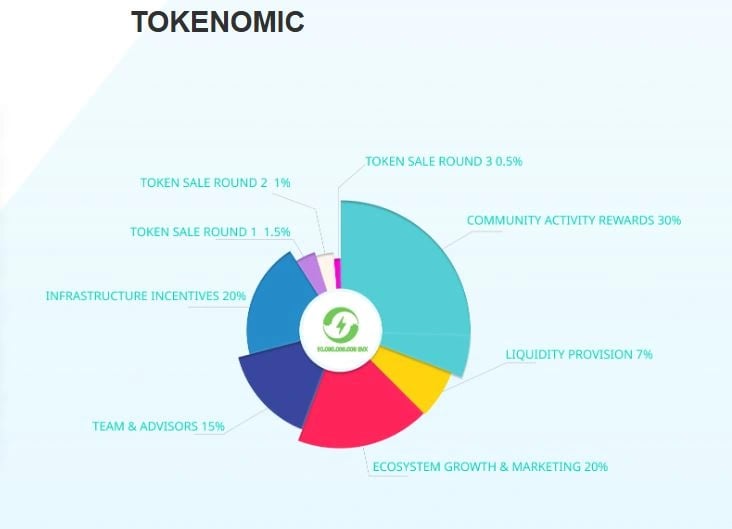
The native utility token of the EVX Protocol is $EVX. The token is integral to the functioning of the ecosystem, serving as the primary medium for payments, staking, and rewards. All transactions on the network, such as payments for charging sessions or vehicle rentals, are intended to be settled using $EVX. It is also used as a staking asset to secure the network and as a reward mechanism to incentivize participation and contributions from users. [1] [2]
Token Allocation
- Community Activity Reward: 30%
- Ecosystem Growth & Marketing: 20%
- Infrastructure Incentives: 20%
- Team & Advisors: 15%
- Liquidity Provision: 7%
- Token Sale Round 1: 1.5%
- Token Sale Round 2: 1%
- Token Sale Round 3: 0.5%. [1]
Partnerships
MEGX
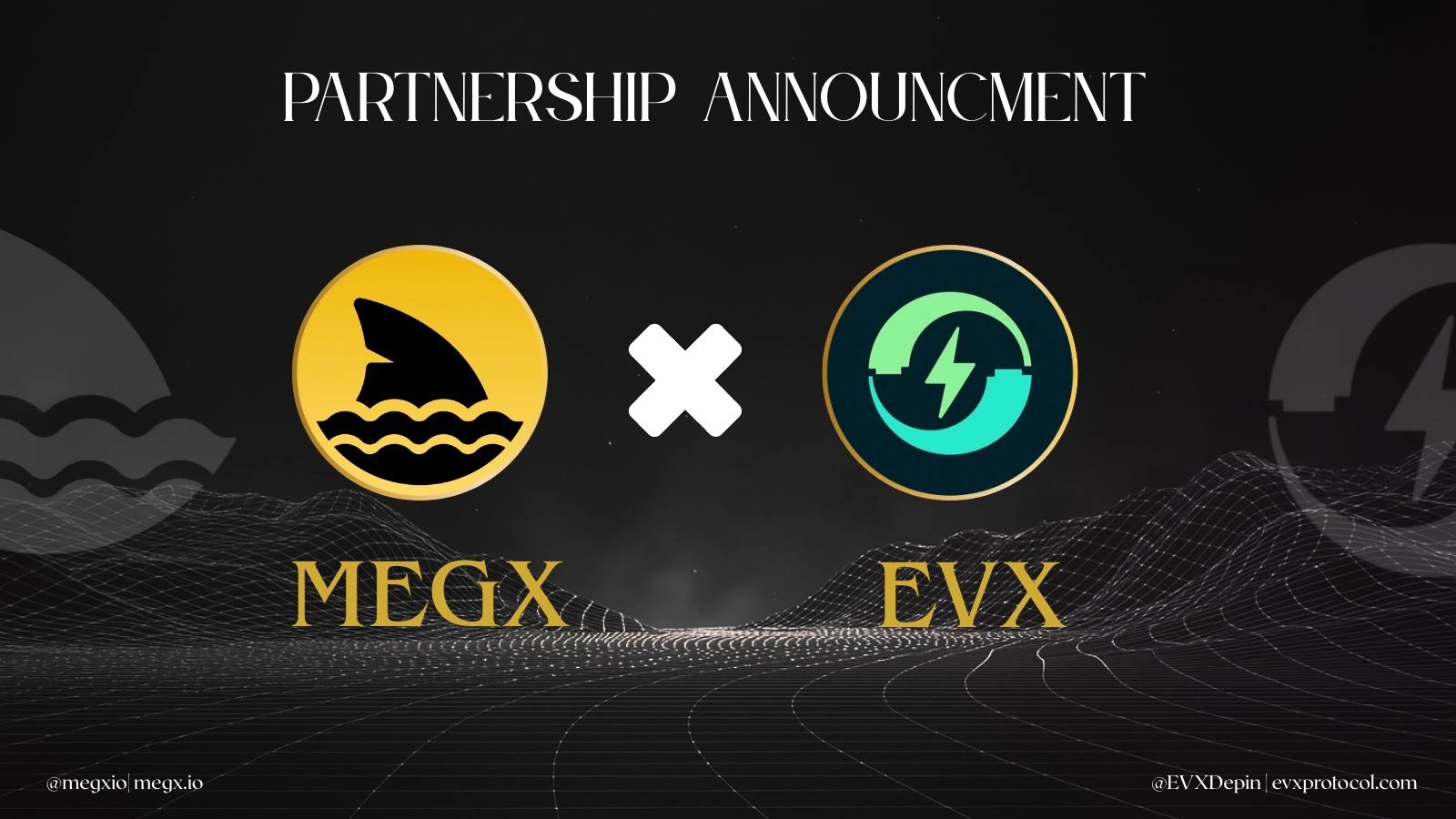
EVX Protocol partnered with MEGX, AI Powered Trading Bots for DeFi The partnership combines both MEGX’s cutting-edge AI trading technology and EVX Protocol’s DePIN infrastructure for real-world assets, to get a smarter, more accessible defi. [3]
Gamerge
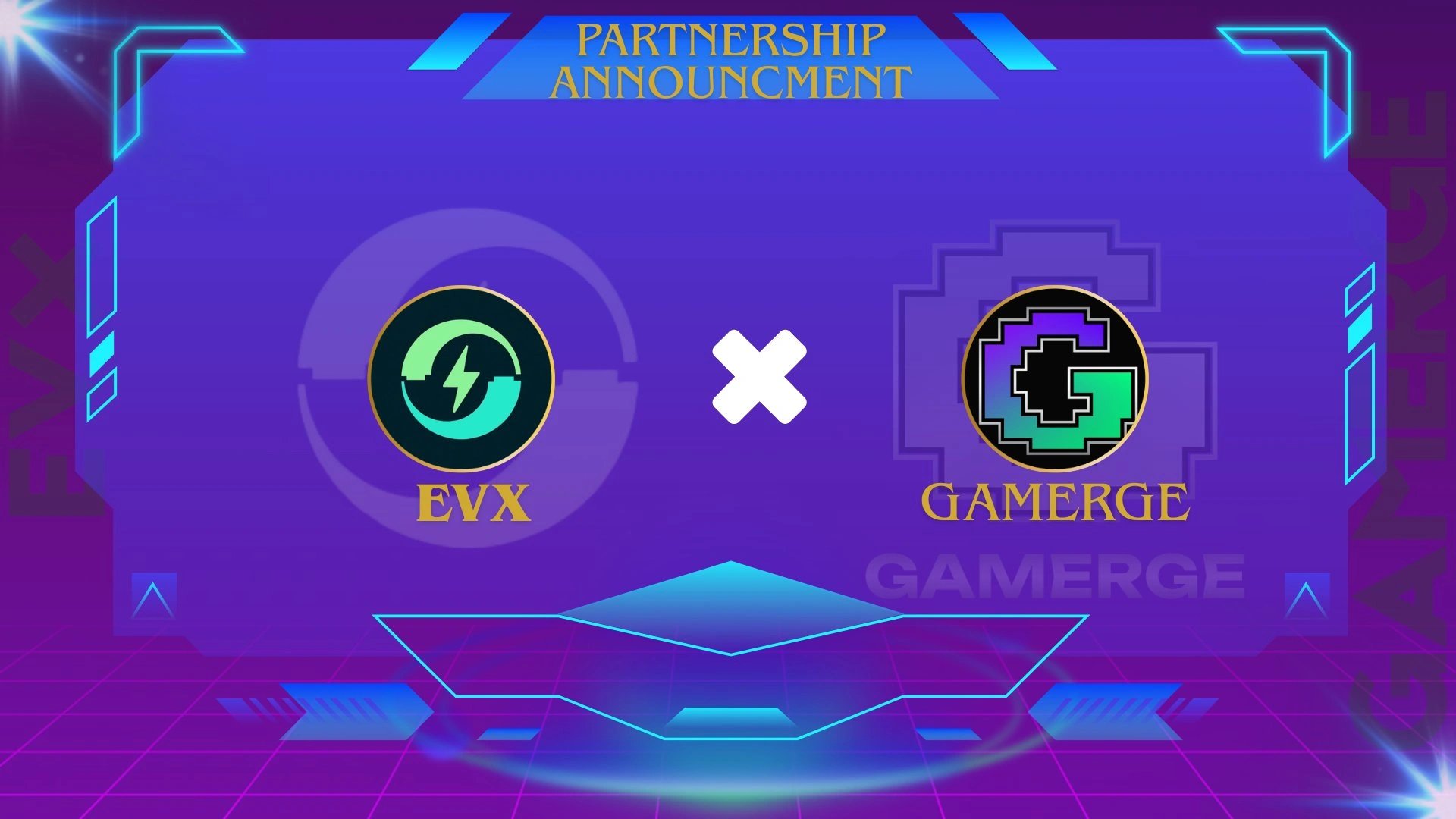
EVX Protocol partnered with Gamerge ai — the next-gen GameFi aggregator on BNB Chain!. The collabration merged DePIN mobility + Web3 gaming to create new ways to Charge, Share, Earn & Play-to-Earn. [3]
OneWave
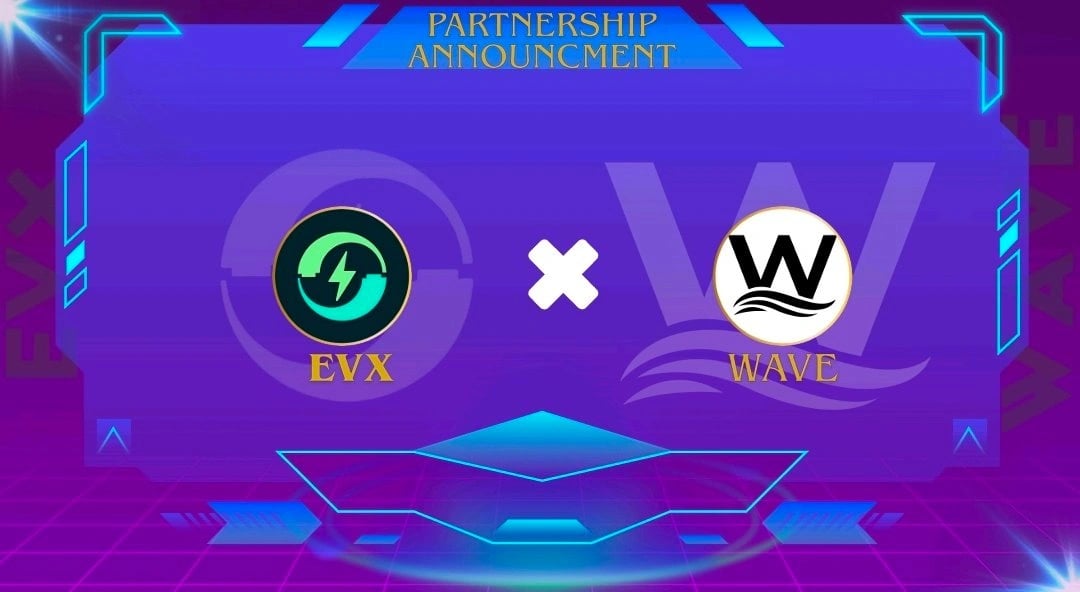
EVX Protocol partnered with OneWave , a multi-chain ecosystem bringing real-world blockchain utility to life! to deliver payments, staking, NFTs, gaming, AI tools & more. [3]
Other partnerships established includes; MerchMinter and Insight Genesis
See something wrong?
The Agent Tokenization Platform (ATP):Build autonomous agents with the Agent Development Kit (ADK)
